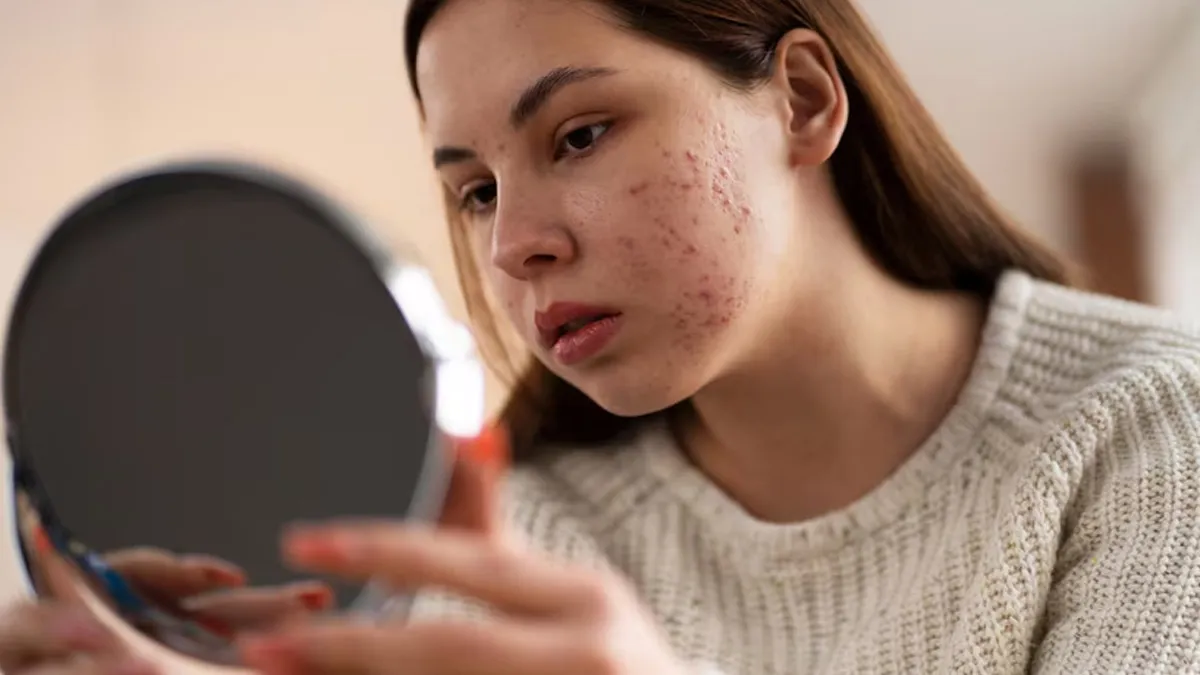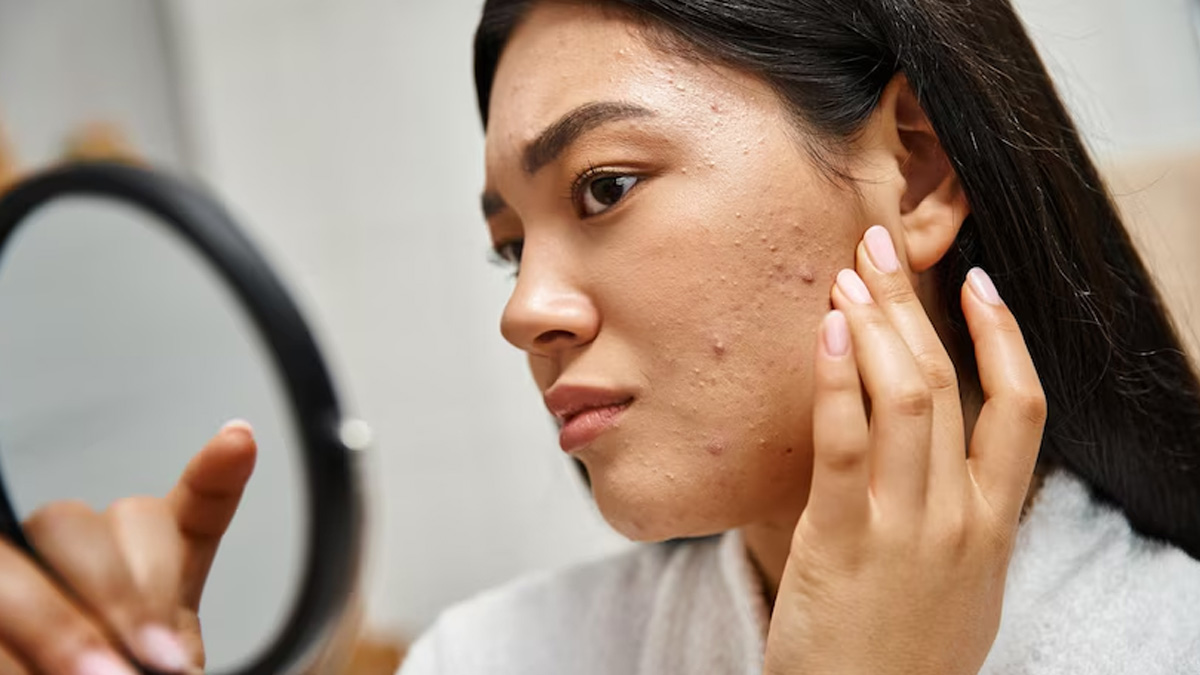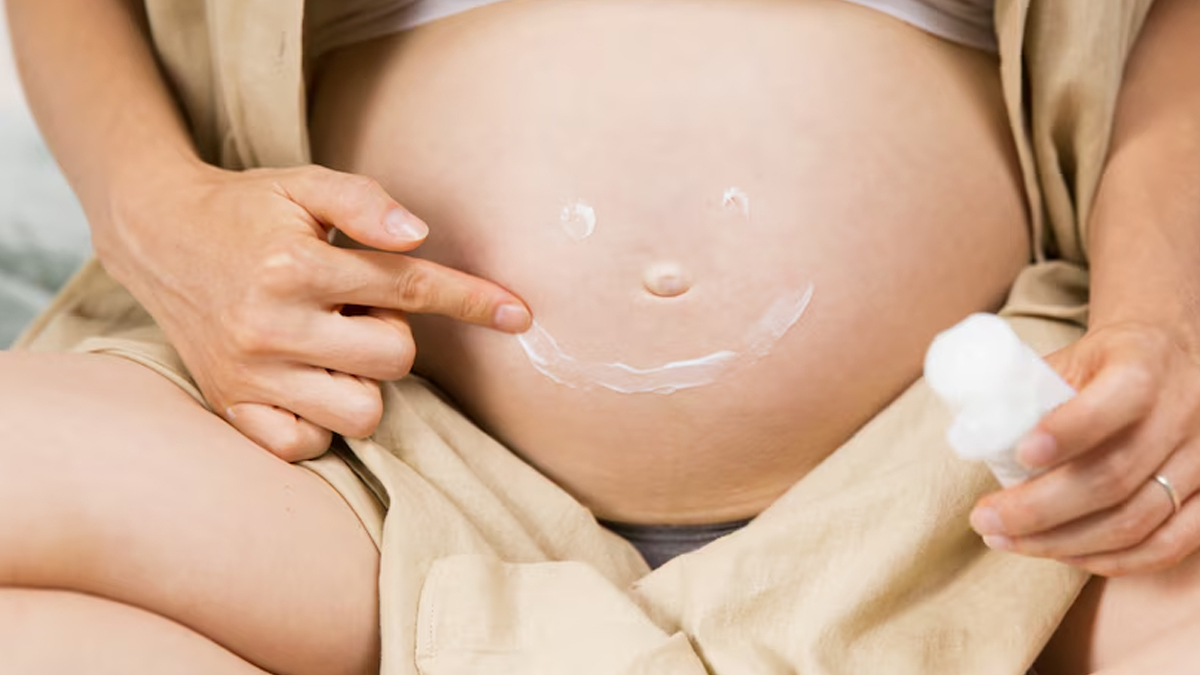
From weight gain to change in metabolism and digestion, pregnancy brings enormous changes to a woman’s body. This transformation includes significant changes in the skin as well. Skin problems during pregnancy occur primarily due to the hormonal fluctuations, increased blood flow, and physical stretching of skin. While most of these issues are temporary, they still can cause discomfort and may affect self-confidence.
Table of Content:-
To understand more about the skin issues during pregnancy, OnlyMyHealth team interacted with Dr Pooja C Thukral, Senior Consultant – Gynaecologist, Cloudnine Group of Hospitals, Faridabad.
Dr Thukral explained, "Pregnancy-related skin problems such as acne, stretch marks, and itching are common due to hormonal shifts and changes in the body's physiology. Fortunately, with proper care and precautions, these issues can be effectively managed."
Let’s take a closer look at the common skin concerns during pregnancy and how to address them.
1. Pregnancy Acne

Dr Thukral said, "Hormonal surges, particularly increased levels of progesterone, can stimulate oil glands, leading to clogged pores and acne breakouts.” This is especially common during the first and second trimesters.
How to Manage Pregnancy Acne:
- Use Gentle Cleansers: Wash your face twice daily with a mild, fragrance-free cleanser to remove excess oil and dirt without irritating the skin.
- Moisturise Wisely: Choose an oil-free, non-comedogenic moisturiser to prevent clogged pores while keeping the skin hydrated.
- Spot Treatments: Opt for natural remedies like diluted tea tree oil or aloe vera gel. "Pregnant women should avoid over-the-counter products containing retinoids or salicylic acid, as they may not be safe during pregnancy," advises Dr Thukral.
- Stay Hydrated: Drinking plenty of water helps flush out toxins and keeps the skin clear.
Also read: Understanding Importance Of Prenatal Vitamins: What To Take And When
2. Stretch Marks

Stretch marks, or striae gravidarum, commonly appear due to the rapid stretching of the skin as the body grows. They typically develop on the abdomen, breasts, thighs, and hips as red, pink, or purple streaks that may fade over time but rarely disappear completely.
How to Manage Stretch Marks:
- Hydrate Your Skin: Regular application of moisturising creams or oils such as cocoa butter, shea butter, or almond oil can improve skin elasticity.
- Use Vitamin E and Hyaluronic Acid: These ingredients support skin repair and hydration.
- Maintain a Healthy Weight: Gradual weight gain can reduce the risk of stretch marks by minimising skin strain.
- Stay Active: Regular exercise improves blood circulation and supports skin health, potentially reducing the severity of stretch marks.
- Postpartum Treatments: "After pregnancy, consult a dermatologist for advanced treatments like laser therapy or microneedling to minimise the appearance of stretch marks," suggests Dr Thukral.
3. Itching During Pregnancy

Itching, particularly on the belly, breasts, and thighs, is common as the skin stretches. According to WebMD, Hormonal changes and increased blood supply to the skin can contribute to itchiness. In rare cases, intense itching could signal a condition called cholestasis of pregnancy, which requires medical attention.
How to Manage Itching:
- Moisturise Frequently: Use fragrance-free, hypoallergenic moisturisers containing oatmeal, aloe vera, or chamomile for relief.
- Use Lukewarm Water: Bathe in lukewarm water instead of hot water to avoid stripping the skin of its natural oils. Adding colloidal oatmeal or baking soda to the bath can provide extra comfort.
- Wear Breathable Clothing: Opt for loose, cotton clothing to prevent irritation and allow the skin to breathe.
- Stay Hydrated: Keeping the body hydrated from within helps reduce dryness and itching.
- Avoid Scratching: Scratching can worsen irritation and lead to infections. Instead, gently pat the itchy area or apply a cold compress for temporary relief.
Also read: Debunking Myths: Does Hair Washing Really Affect Pregnancy Planning?
General Tips for Healthy Skin During Pregnancy

Dr Thukral emphasises the importance of a holistic approach to skincare during pregnancy:
- Eat a Balanced Diet: Include foods rich in vitamins A, C, and E, as well as zinc and omega-3 fatty acids to promote skin health.
- Protect Your Skin from the Sun: Use a pregnancy-safe sunscreen with SPF 30+ to prevent hyperpigmentation, known as melasma or the “pregnancy mask.”
- Avoid Harsh Chemicals: Steer clear of skincare products containing retinoids or hydroquinone, as they may harm the baby.
- Manage Stress: Stress can worsen skin issues like acne or itching. Engaging in relaxation techniques such as yoga and meditation can help.
- Get Regular Check-ups: "It's crucial to report any unusual skin changes to your doctor for early diagnosis and management," advises Dr Thukral.
When to See a Doctor
While most pregnancy-related skin issues are harmless, certain symptoms may warrant medical attention:
- Severe itching, particularly on the palms and soles, could indicate cholestasis of pregnancy.
- A sudden onset of rashes, redness, or hives may signal an allergic reaction or conditions like pruritic urticarial papules and plaques of pregnancy (PUPPP).
- Painful, pus-filled acne lesions that do not improve with basic care should be evaluated by a doctor.
Conclusion
Pregnancy skin problems like acne, stretch marks, and itching are common but manageable with the right care and precautions. By adopting a gentle skincare routine, maintaining a healthy lifestyle, and seeking medical advice when necessary, expectant mothers can navigate these challenges and focus on the joy of welcoming their little one. "Most skin changes during pregnancy are temporary and resolve postpartum, leaving you with cherished memories of this special time," assures Dr Thukral.
Also watch this video
How we keep this article up to date:
We work with experts and keep a close eye on the latest in health and wellness. Whenever there is a new research or helpful information, we update our articles with accurate and useful advice.
Current Version
